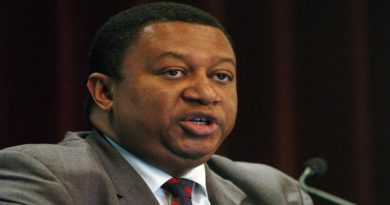Enact legislation on climate change, experts urged FG
Experts in environmental law and climate change negotiations have called on the Federal Government of Nigeria to urgently enact legislation that would enable the country to implement its Nationally Determined Contribution (NDCs) submitted under the Paris Agreement.
Besides, they stressed that such legislation would help to streamline all the policies and institutions relating to climate change within the country, and also provide a legal basis for further action on climate change.
This formed the kernel of discussion at a virtual workshop on Thursday 11 February 2021 organised by Centre for Climate Change and Development, Alex Ekwueme Federal University, Ndufu Alike in collaboration with World Resources Institute, themed Promoting Public Engagement with Nigeria’s NDC Revision and Climate Action, with a focus on Legal perspectives to raising ambition and implementing Nigeria’s NDCs.
Although they acknowledged that Nigeria has legislative and policy instruments available to guide the implementation of the country’s current NDCs, but that they do require strengthening.
In his welcome remarks, facilitator of the virtual workshop and Director CCCD, Prof. Chukwumerije Okereke, said the focus of the meeting was to look at the legal perspective of the NDC and share from the experience of the other countries such the United Kingdom and United States.
Moderator of the event and Director, Climate Negotiations, Climate Change, World Resources Institute, Yamide Dagnet, reiterates that the Paris Agreement is a legal instrument to limit the temperature increase to 1.5°C.
She explained that the Paris Agreement implementation requires each Party to prepare, communicate and maintain successive nationally determined contributions that it intends to achieve and a revised document is due for submission at COP26.
Facilitator, NDC Partnership Nigeria and a Lead Author/panelist at the event, Huzi Mshelia, hinted that there had been a lot of discussion from Paris on the kind of legal framework to implement the NDC. He said Nigeria intend to pursue high economic growth with low emission in line with the Sustainable Development Goals.
Corroborating him, Dr. Tomilola Akanle, a co-Author/Panelist disclosed that Nigeria does not have law that addresses climate change, adding that the main instrument on climate change in Nigeria is the National Adaptation Strategy and Plan of Action on Climate Change for Nigeria (NASPA-CCN) 2012 which is not enforceable.
Akanle expressed optimism that the Climate Change Bill that is currently being reviewed to address some of the gaps pointed out in it would soon receive accent by the President.
She stressed that what is actually missing is the enforcement of policies and institutions.
Professor of Environmental Law, University of Reading UK and a discussant at the event, Chris Hilson, disclosed that the UK has a climate change legislation. He said what is really important is the coordination of individual laws to address climate change.
He emphasised that Nigeria needs to raise its level of ambition and think of the benefits of decarbonisation.
Legal Advisor, African Group of Negotiators and a panelist, Salem Abebe, in her presentation on Legal consideration for Progression & Implementation of NDCs, said the NDCs have collective obligation and individual goals.
She explained that the NDCs have different elements and components as stated in the Article 4 of the Convention and that each country need to have legal instruments on how they will ensure they meet the targets.




